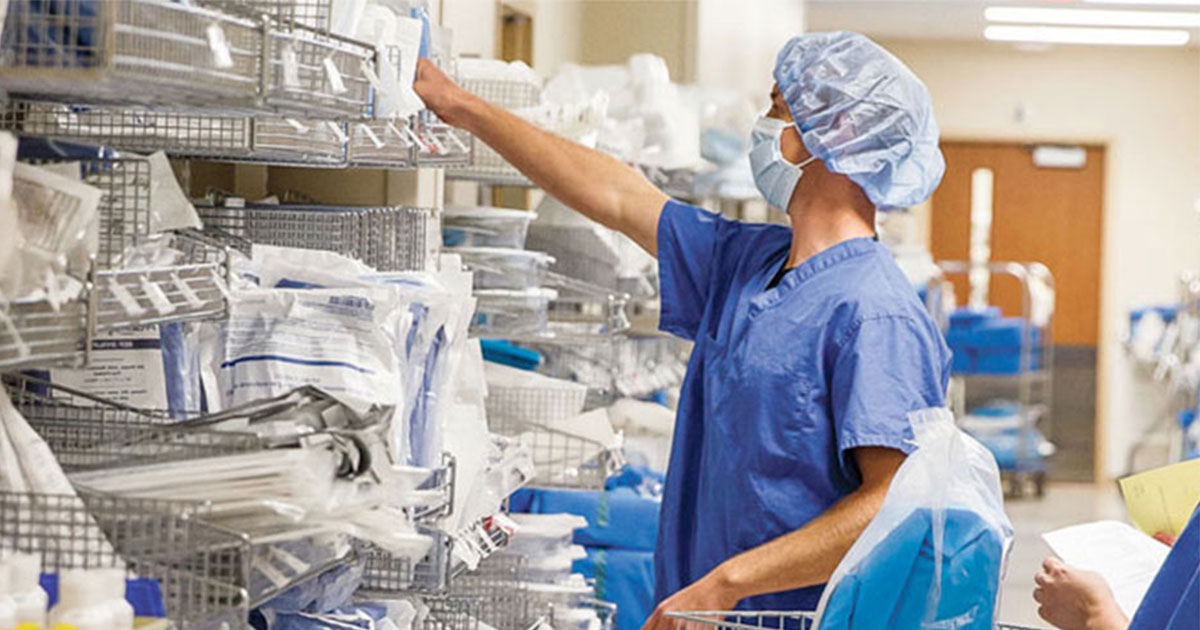Pandemic a catalyst for innovation, transformation in the healthcare supply chain

Stanford Health Care chief supply chain officer says focus on resiliency is new normal
By Medline Newsroom Staff | May 3, 2022
The ongoing COVID-19 pandemic has placed the nation’s supply chain in the media and collective spotlight, along with the need for greater innovation to ensure future reliability, says Amanda Chawla, chief supply chain officer at Stanford Health Care.
This past year, “what’s happened with the ports and the raw materials and so forth are the catalyst to think about supply chain differently; the catalyst to put greater attention and greater resourcing into the role of the supply chain,” Chawla said during a recent Medline presentation. Since 2019, Medline has provided clinically-integrated supply chain solutions for Stanford Health Care through an exclusive distribution partnership.
“Resiliency was the buzzword of 2021, but it’s also the reality of what we’re living with, and in my view point, what we’re going to be dealing with in the future,” Chawla continued. “It’s not a matter of if a disruption will happen, it’s a matter of when. And so how do we get more agile? How do we become more prepared?”
A supply network that puts patients first
In healthcare, fractures in the supply chain can directly impact patient care, says Chawla, who has experienced first-hand the “gut wrenching feeling” when a lack of medical supplies results in a cancelled procedure or limited care.
“That is one of the personal reasons why I am so passionate around this conversation,” and why “we have to stop looking at ourselves as a supply chain and start looking at ourselves as a supply network.”
Supply chains are linear and can and will be broken, says Chawla. Instead, “It’s really about communication. It’s coming together with a solution. It’s being proactive and timely with your partners, and it’s really demonstrating a level of transparency.”
A more intelligent supply chain network
Chawla said a more resilient healthcare supply chain over the next 10 to 15 years will require reliability, financial stewardship and data analysis.
The conversation on reliability is “just getting started,” said Chawla. “There will be transformations and there will be innovation. I would not be surprised if new companies and businesses come in a result of this. It’s the reality of the world that we live in.”
Financial stewardship will continue to have relevance, “but it will happen in a different way, where we can truly start tracking utilization, sustainability, equitable sourcing, and diverse suppliers.”
Any advancement in the field will require better data analysis.
Currently, “we’re data rich, but analytics poor,” said Chawla. “We have no intelligence or very little on our supply chain that actually informs us to make our jobs much easier to do. One of the things that I am personally passionate about is removing the hunting and gathering of our supply chain. We’ve got to move away from that tactical movement — let me solve a problem — to how do we become a more intelligent supply network?”
At the end of the day, Chawla says success will be based on the people and partnerships that make up the healthcare supply chain.
“It’s the collective minds and experiences of many that come together with a common purpose and alignment of the solution. We’re on one team, and that team is for the patient.”
Learn how Medline tailors solutions across the entire continuum of care as a manufacturer and distributor.
Medline Newsroom Staff
Medline Newsroom Staff
Medline's newsroom staff researches and reports on the latest news and trends in healthcare.
